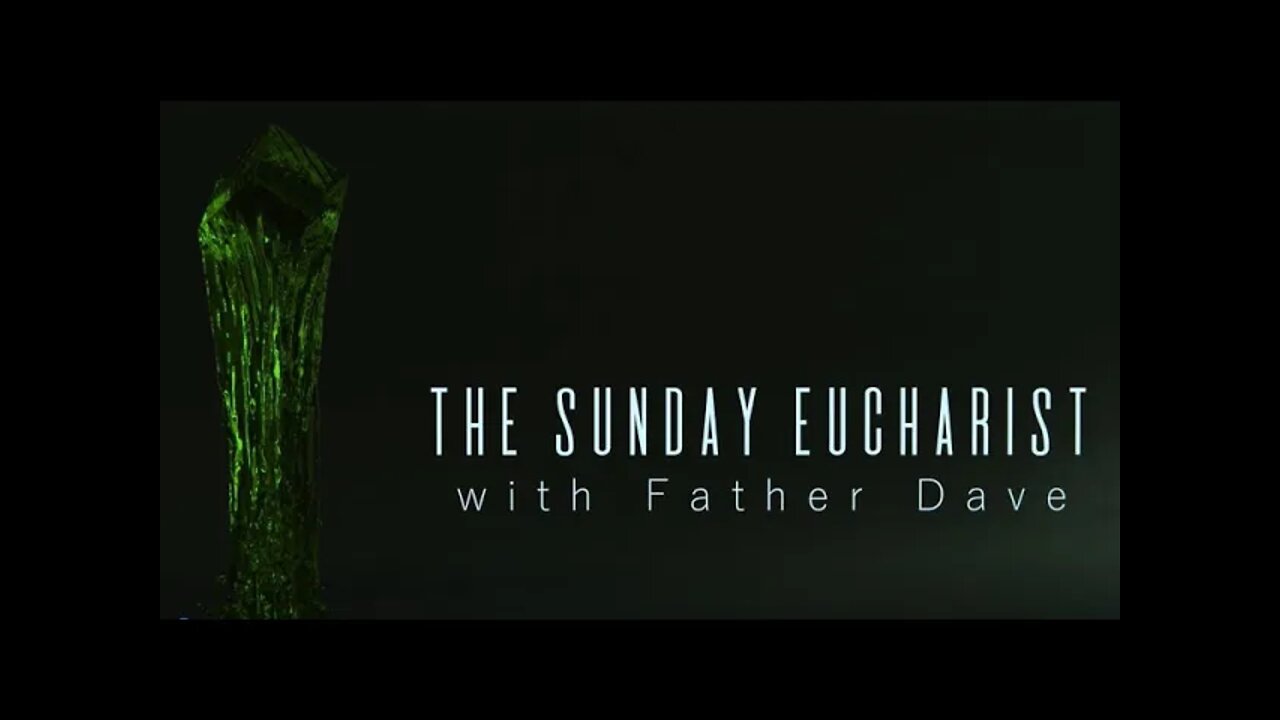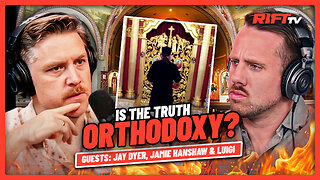Premium Only Content

The Sunday Eucharis-1/10/2022
On entering the house, they saw the child with Mary his mother; and they knelt down and paid him homage. Then, opening their treasure chests, they offered him gifts of gold, frankincense, and myrrh.” (Matthew 2:11)
Do you recognise the story? Yes, it’s the saga of the three wise men, visiting the infant Jesus. We celebrated that event last week in the feast of the Epiphany.
As a child growing up in a Christian household, this was always my favourite part of the Christmas narrative, probably because it involved presents. Of course, I used to wonder how Jesus felt about the gold, Frankenstein and myrrh for Christmas (especially Frankenstein). I figured Jesus had probably been hoping for a puppy. Even so, it was a fun story, and these three kings were always the most interesting figures in the little nativity set we used to have on display in the family home every Yuletide.
When I got older I discovered that most of what I’d assumed about Epiphany was wrong. For one thing, the three kings almost certainly weren’t kings and there may not have been three of them. Moreover, they were never in the nativity scene with the shepherds and the baby in the manger. They likely arrived at Jesus’ home a couple of years later. Even so, while I was sorry to lose my childhood fascination with these characters, what I discovered about them in later life more than made up for any childhood disappointment.
Jesus’ exotic visitors, detailed in the Gospel of Matthew, chapter two, were ‘magi’ (from which we get the word ‘magician’). They were court magicians, a bit like Merlin in the court of King Arthur. Ancient Near Eastern courts had multiple magi attending the king, giving sagely advice and consulting the stars on matters of importance. What strikes me about these unexpected guests in Jesus’ home is that they aren’t just foreigners from another country. They represent an entirely different religion, with practises that Jesus’ people rejected entirely as pagan and superstitious.
“Those who divide the heavens, who gaze at the stars, who at the new moons predict what shall befall you. Behold, they are like stubble,” says the Lord. The fire consumes them; they cannot deliver themselves from the power of the flame.” (Isaiah 47:13‑14)
“Thus says the LORD: “Learn not the way of the nations, nor be dismayed at the signs of the heavens because the nations are dismayed at them, for the customs of these peoples are false.” (Jeremiah: 10:2‑3)
The Biblical narrative as a whole has little respect for stargazing magicians. It doesn’t see these people as fellow-travellers on the road to salvation. It sees them as pagan idolaters who don’t have a clue! Even so, these astrologers find their way into the Nativity scene every Christmas, and moreover, they are there because they are invited, and they received their invitation by looking at the stars!
Epiphany for me is the feast of inclusiveness. If there’s room for these bizarre magicians in our Christmas celebrations, there should be room for everyone. Church people like me (especially those of us with clerical collars) tend to think of God and Jesus as being our property. We are the only ones with real access to Jesus. We are the gatekeepers who decide who gets in on the holy huddle. Then we spin around and see that there are all sorts of people with Jesus – people of all countries and all ages and all faiths – even a group of astrologers. They are all there and they are all invited!
Happy Epiphany, fighter. May the spirit of inclusiveness that led the magi to Jesus via a star, lead you to open your heart to all of God’s children in all their diversity.
Dave
http://www.fatherdave.org
http://www.fighting-fathers.com
-
 LIVE
LIVE
RiftTV/Slightly Offensive
3 hours agoIs ORTHODOXY the TRUE Church of Christ? | The Rift | Guests: Jay Dyer, Jamie Hanshaw + Luigi
1,230 watching -
 LIVE
LIVE
a12cat34dog
2 hours agoFINISHING THIS CLASSIC :: God of War (2005) :: FIRST-TIME PLAYING {18+}
61 watching -
 3:55:01
3:55:01
Nerdrotic
4 hours ago $5.98 earnedMarvel's Doom Loop, Superman's James Gunn Looks Down? 28 Years Later | Friday Night Tights 359
37.3K16 -
 LIVE
LIVE
Edge of Wonder
3 hours agoAntarctica Secrets: Radio Signals that Defy Physics & ChatGPT Lying
424 watching -
 LIVE
LIVE
Midnight In The Mountains
3 hours agoGaming w/ PER·SE·VER·ANCE | 1K Celebration Stream | Gears Beta Round 2
29 watching -
 9:20
9:20
WhaddoYouMeme
22 hours ago $0.02 earnedThe BRUTAL 5-Step Trap Keeping Christians Watching P*rn
2306 -
 LIVE
LIVE
LFA TV
23 hours agoLFA TV ALL DAY STREAM - FRIDAY 6/20/25
735 watching -
 LIVE
LIVE
BLoobsGaming
4 hours agoEmpyrion! RIP CV... Build Back Better?
32 watching -
 1:03:10
1:03:10
BonginoReport
3 hours agoFacts Get In The Way Of The LA Dodgers’ Narrative - Nightly Scroll w/ Hayley Caronia (Ep.74)
107K29 -
 1:31:28
1:31:28
Kim Iversen
4 hours agoCongress Is Secretly TOPPLING The MAHA Agenda | Israel's Plan For Gaza Exposed
99.2K45